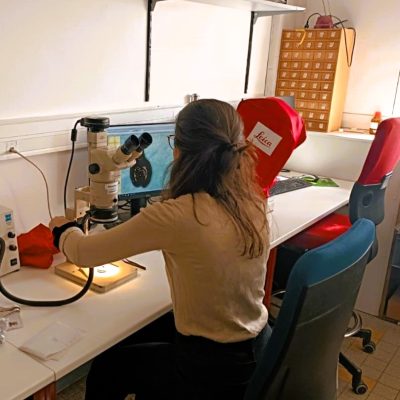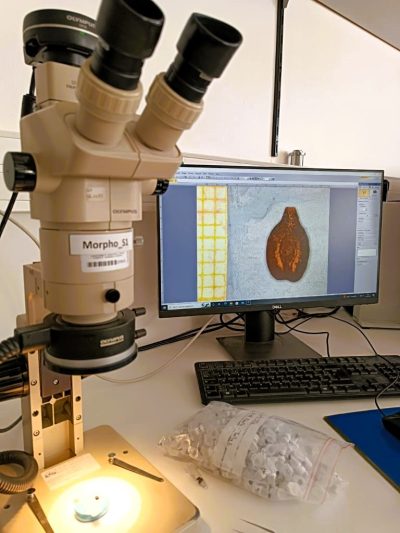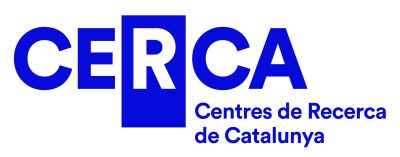
We are pleased to share with you the latest updates from predoctoral researcher Theoni Baniou, who has begun a two-month research stay at the University of Montpellier (France) under the supervision of Dr. Laurent Bouby, a member of the Carpology-Anthracology Platform of the Dynamics of Biodiversity and Anthropoecology Research Group at the Institut des Sciences de l’Évolution de Montpellier (ISEM).
Dr. Bouby and the ISEM team are generously sharing their expertise with our researcher from the GIAP Archaeobotany team, who is being trained on the Geometric Morphometrics (GMM) technique.
During this stay-collaboration research, Baniou is applying this training on grape pip samples from the Roman site of Guissona (Catalonia, Spain). The training covers all steps of the processing, from photographing the pips and analyzing the images to using basic statistical procedures to compare the archaeological grape samples with both each other and modern reference samples of domesticated and wild grapevines, using the host center’s extensive database.

This collaboration is being very fruitful, and the initial results are truly promising! Follow us on social media for new insights into Roman viticulture (@ICAC_cat, @GIAP_ICAC).
Theoni Baniou is developing her doctoral thesis at ICAC-CERCA, Exploring Roman tastes: an interdisciplinary approach, using archaeobotany, organic residue analysis, and GMM to reconstruct dietary habits in the northeast of the Iberian Peninsula, under the supervision of Drs. Alexandra Livarda (ICAC-CERCA) and Núria Romaní (UAB).
This project is supported by a grant from the Catalan Institute of Classical Archaeology (CIN21).
About the Catalan Institute of Classical Archaeology (ICAC-CERCA)
The Catalan Institute of Classical Archaeology (ICAC-CERCA) is a CERCA center established as a consortium in 2003 by the Government of Catalonia and the Rovira i Virgili University. It is a Catalan institution with an international scope, at the forefront of research and conservation of archaeological heritage. Its headquarters are located in Tarragona, a city recognized as a UNESCO World Heritage Site in the year 2000. Its researchers work to understand the past through the study of archaeological remains and promote the preservation of the historical legacy. We are CERCA!
For more information, visit www.icac.cat.






